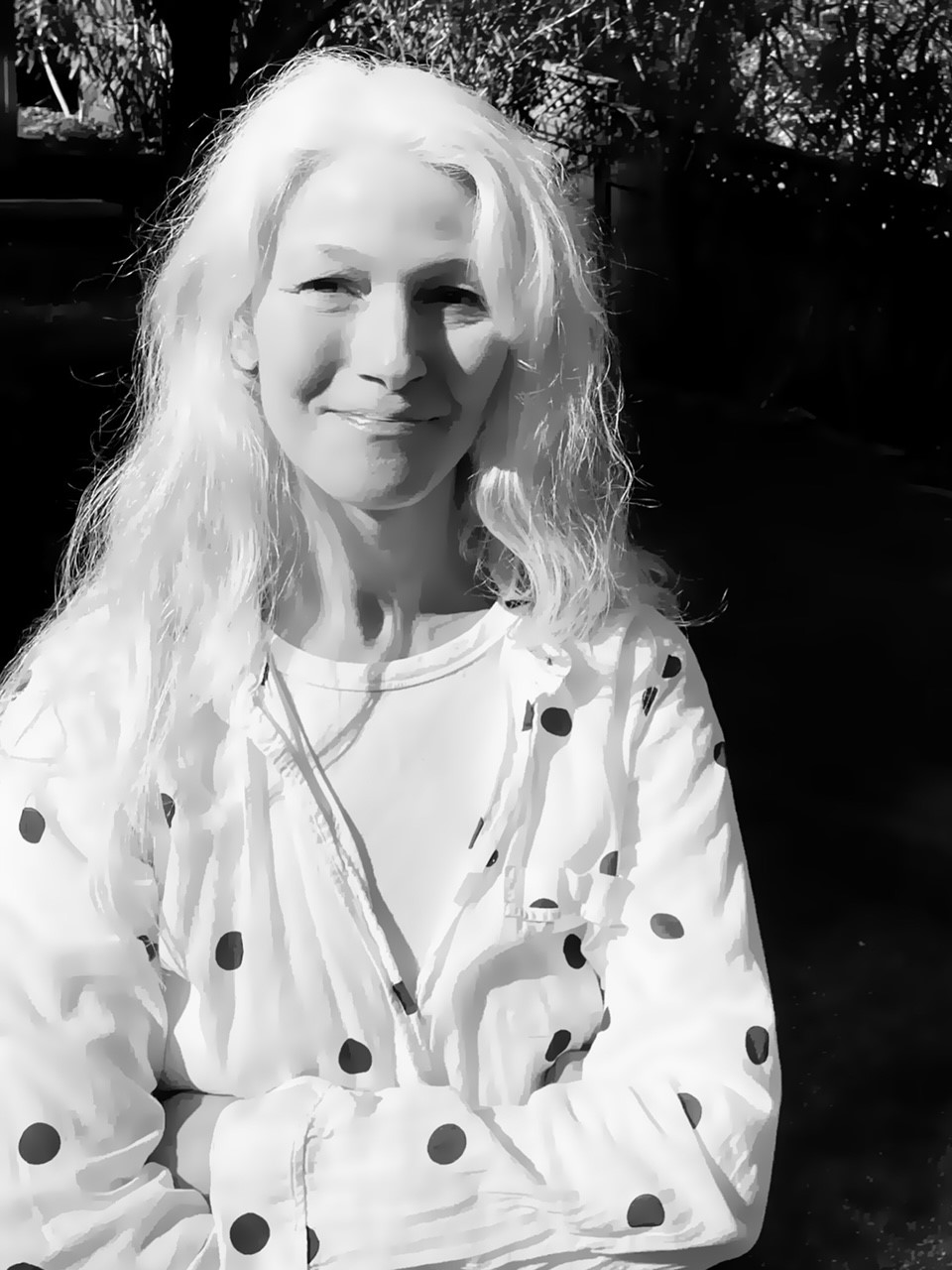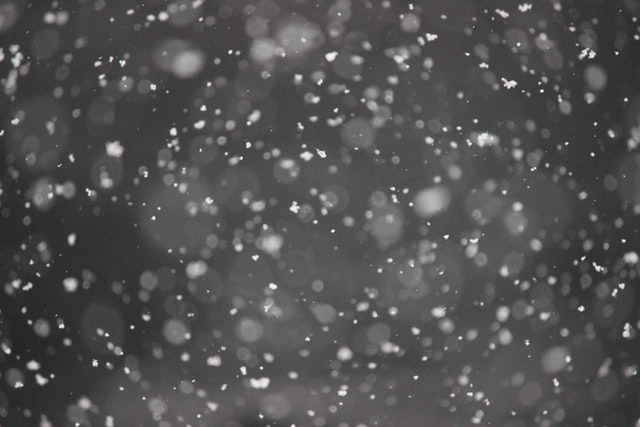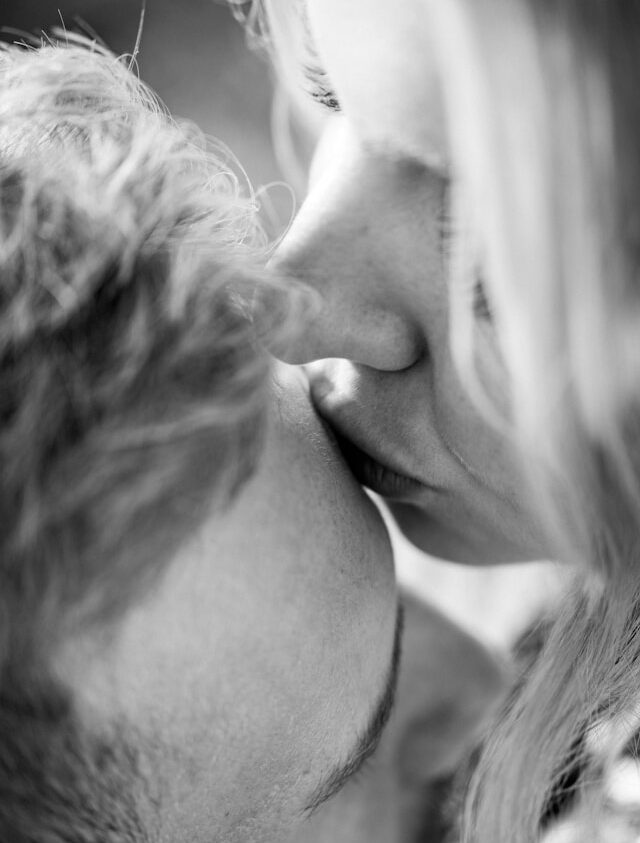Snow in its Flight
After you called, I put the tea kettle on and sat in the kitchen. I like watching the steam curl up, slender and sinewy, from a cup of tea. Actually, my favorite thing about tea is the kettle’s hiss and low rumble that grows more clamorous until it whistles, screeching like a siren, yanking me out of one moment and into the next. I’m never prepared for it; yet it seems the truest sound in the world.
And now I remember playing as a girl in our small town in Washington state, where the Douglas Firs scrubbed the cloud layer over our heads. You were part of the big group of kids, though I didn’t know you well then. We’d head down to the deep blue lake, and whoever got there first sat in the Madrone tree that had grown a horizontal branch connecting its two main trunks. It was a perfect perch. We were so lucky, growing up during a glorious time when children played outside until dark and parents didn’t know or ask where kids were or what they were doing. Hours spent by the water, building forts, skipping rocks, and designing wings made out of tree branches so we could fly. At some point, cutting through the dark, came the piercing shriek of my mother’s whistle, which sounded like the final note of a tea kettle.
She’d stand on our back porch and put her two pointer fingers at the corners of her mouth. Out came an urgent shriek that you could hear anywhere in the neighborhood. It ripped me out of playing at the lake, and as I sprinted home, on blustery days, I’d hear the wind’s high-pitched whistle through the trees.
And I remember, much later, hearing the same shriek in Denmark, where you and I attended the University of Copenhagen. We lived in those tiny dorm rooms in that suburb with its huddle of brick houses, one after another like a hiccup. Occasionally, the pattern would be disrupted by a house made of wood. Though I was studying probability theory and stochastic patterns—those random distributions found in life–I was always startled by the wood house, a singular island in a sea of brick.
Each morning at 7:40 am, we’d stand on the platform, wearing heavy coats and gloves against the cold and snow, and wait for the train to take us to Copenhagen, about 30 minutes away. We’d gone to the same high school in Seattle. You sat two seats ahead of me in Mr. Milner’s Western Civilization class, and I can still picture your dark curly hair like a tea-stained halo around your head. That’s when we first became good friends, with those class discussions that trailed us out the door and into the hallways and sometimes into lunch. I had no idea I’d see you in Denmark, but there you were at Orientation Day, tall and wiry, with your big eyes, startling blue, and two leather suitcases, eager to study biology.
On the platform, we’d talk about how many inches of snow fell last night and how many might fall during the day. We were enamored with the snow because we rarely saw it where we grew up at sea level. You liked your classes, and so did I, but it was a requirement that all exchange students study Danish and we struggled. The language with so many vowels next to each other felt like rolling marbles in our mouths. Soon, though, we could say the most basic things: How much does this cost? My name is Kate. My name is Henry. How are you? Does this train go to Copenhagen? But we were confined to the present tense and couldn’t speak of the past or future.
When the red train pulled up to the platform, it let out a loud whistle, and whatever we were talking about would abruptly end. When we got on the train, if we happened to find seats together, our previous conversation was forgotten, as if the whistle had erased it, and we began a new discussion, or we’d stare out the window at the falling snow.
After classes, a group of exchange students would walk the city’s cobblestone streets where the cars were not allowed and explore, often meandering down the side alleys to marvel at the old buildings mingling with the new. On Thursdays, when our classes ended late, we’d walk the main promenade in the dark, and I’d look at the random points of warm yellow light emanating from the window. I’d often talk to you about stochastic patterns. They’re everywhere, I’d say, ordinary speech waves, seismological signals, the stock market; this, I’d add, a random walk. We don’t know where we’re going to end up. But you never liked this idea and argued intensely there is always a pattern, even if it isn’t immediately discernable. What we call random is really peering over the edge of our ignorance. It would become an argument we’d have many times.
The train’s shrill whistle punctuated the day as it rumbled into the city and groaned out again. You said you no longer heard it, it was background noise. But not for me. When it screamed out, I always startled.
#
We walked to the platform to catch the 6:00 train to Copenhagen. We’d had to join the choir and tonight was the performance for the general public, the last week of the semester. There was a party afterward, and last year everyone ended up drunk and splashing in the indoor pool in only boxers or underwear and bra. I wanted to go and see what might happen. You said you’d go but didn’t have plans to do anything crazy.
It was unseasonably cold, a mere seven degrees Fahrenheit, and as I stood on the platform with you, my black coat with the fur collar failed to fend off the freezing air. You started jumping around, waving your arms like a big bird, and I joined you, neither of us caring that the smattering of people on the platform was staring at us. We started belting out our Danish songs, twirling and spinning, and despite the cold, we were laughing, sending big plumes of white clouds up into the snowy air. The train station intercom blared something that neither of us understood. But when the other passengers left, we intuited the train was not coming. We stood in front of the lit-up sign, slowly translating. The 6:00 pm train was canceled, maybe the 6:30 and 7:00 pm, too. Ice on the tracks. This had never happened before, not in the fifteen weeks that we’d been in Denmark. We’d heard from the Danish students that the train system was as reliable as the earth rotating around the sun.
For a moment, you stood there in disbelief, and if it wasn’t so cold, you probably would have stayed on the platform, waiting and waiting. As we headed back to the dorm, the falling snow began to blow horizontally, and when a strong gust of wind came along, it flew upward as if the earth itself was snowing. The snow was falling at an unnatural rate, and as we made our way to the dorm, each step was a tremendous effort, with the snow coming up to our thighs. The train canceled, I said, a random event. Foreseeable, you said, we’re in Northern Europe, it’s winter, cold temperatures lead to ice.
You were so fiercely against random events. Study the body, you’d say. There is not one random system, not one. Everything is interconnected in a brilliant, astonishing system. Only later, Henry, did I understand you were on a predetermined track–required classes, then medical school, internship, residency, to become a doctor. Variability was an enemy that had the power to derail your dream, a dream you told me you’d had ever since you were six years old.
The streets were deserted, and when we made our way through the snowy night to the dorm, the emptiness of the neighborhood echoed with silence. It was no ordinary silence because I kept listening for the train’s whistle, but there was only the silence of the blizzardy snow.
My key didn’t work. The cold causes metal to contract, you said. Your key, however, did work, and you had nothing to say about that. We ran inside, and up the stairs, we were so cold, our teeth chattering, and we sprinted up and down the hall, flapping our arms, singing our songs, trying to get warm. A couple students poked their heads out of open doors to see what was happening.
We ended up in your dorm room, both of us huddled next to the old radiator, sputtering and rattling, trying to get warm. Outside, snow coated the streets and swirled up to the clouds. The windows rattled with gusts of wind. I held my hands close to the heat, but my teeth kept chattering. You reached over and took both my hands in yours. How were your hands so warm? I didn’t say anything as you squeezed and rubbed my fingers because I felt the floor tilt and wobble, and then I seemed to levitate. You smiled, your eyes soft, the air soft. Suddenly extremely warm, I took off my coat and wool sweater and thinner sweater, and you placed your hand on my bare stomach. My heart thumped and occasionally skipped a beat, and my boots were soaked. I kicked them off, along with my socks, and you began to strip.
After, we laughed at ourselves, our sweaty naked bodies in your tiny twin bed, with no room but to hold each other tightly. I see us there, our bodies burnished and hot from the touching and stroking and lovemaking. The room glowed with the light of snow. I see us there as if it were yesterday.
The next day, when the snow removal machine plow was out, spraying wings of snow to clear the roads, we climbed back into the envelope of friendship. We decided it was for the best—you, off to medical school, and the long road to becoming a doctor. Me enrolled in a Ph.D. program for math and eventually teaching at Yale. I called that night a random event, and for the first time, you agreed.
Another random act, you calling me out of the blue, fifty years later. On a whim, several years ago, I’d looked you up on the internet. I learned you’d become a cardiothoracic surgeon; your hair was white, wiry tufts. On the phone, though, you sounded young, the voice I knew from our time in Denmark, and I imagined your eyes were the same startling blue. I wanted to tell you that I wished you’d argued with me that our night in Denmark was not random at all. I wanted you to say it was foreseeable, as you always used to say. Our astonishing bodies clinging to each other, deep in the pocket of pleasure, as the snow flew outside the window. I still can’t remember who shrieked louder.




